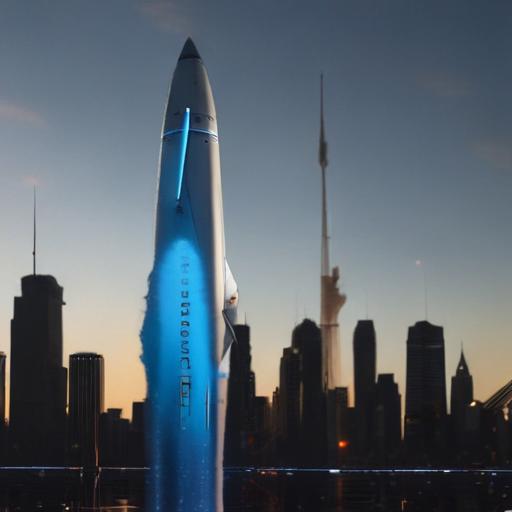Rocket Lab advances on two fronts: 70th Electron launch and CHIPS Act-backed capacity expansion
Rocket Lab USA is in focus after two pivotal developments. The space-launch company completed its 70th Electron mission, and it is expanding its semiconductor manufacturing capacity in the United States with support from a CHIPS and Science Act grant. Following these announcements, RKLB shares rose about 6.4% on Monday, boosting the year-to-date gain to more than 85%.
What happened
– Electron mission milestone: Rocket Lab successfully launched its 70th Electron rocket on August 23 from New Zealand, marking the 12th Electron flight of 2025. The rapid cadence continues a busy schedule that frequently supports satellite constellation deployments in low Earth orbit.
– U.S. manufacturing expansion: At the same time, the company is ramping up U.S. semiconductor manufacturing capacity. The Trump administration-backed CHIPS and Science Act provided a $23.9 million grant from the Department of Commerce to support these investments. Over the next five years, the expansion is intended to strengthen Rocket Lab’s position as a leading satellite maker, component supplier, and full-service space-mission provider.
What investors are watching
– Positive analyst sentiment: Despite mixed Q2 results earlier this month, analysts have lifted their price targets, signaling confidence in Rocket Lab’s long-term growth prospects. The upcoming Neutron launch, slated for late 2025, is viewed as a potential catalyst.
– Consensus and upside: TipRanks data show a Strong Buy consensus for RKLB, with nine Buy ratings and four Hold ratings in the last three months. The average target price stands at about $48.55, implying a modest upside from current levels.
What this could mean going forward
– Neutron as a catalyst: The Neutron heavy-lift launcher represents a major strategic step for Rocket Lab, expanding its flight profile beyond small satellites and potentially unlocking new commercial and government contracting opportunities. Investors may view a successful first flight of Neutron as a meaningful near-term catalyst, though some may prefer to see the inaugural flight before committing more capital given the stock’s recent run.
– Domestic manufacturing leverage: The CHIPS Act grant underscores a broader trend of government support for domestic semiconductor manufacturing. For Rocket Lab, increased in-house capability can shorten supply chains, improve component reliability, and foster faster iteration with customers who rely on space-grade electronics.
Takeaway
Rocket Lab is advancing on multiple fronts: cementing its role as a fast-moving small-launch provider with a record launch cadence, while also expanding domestic semiconductor capacity to support both current operations and future spacecraft. With a Strong Buy consensus from analysts and a schedule that includes the late-2025 Neutron flight, the stock narrative combines execution on launches with strategic manufacturing investments. However, investors should be mindful of near-term volatility given the stock’s rapid year-to-date rise and the risks associated with a first flight of a new launch vehicle.
Summary note
Rocket Lab’s dual focus on accelerating its Electron mission cadence and expanding U.S. semiconductor manufacturing—bolstered by government support—positions the company for continued growth in the space industry, even as the market awaits the first Neutron flight and the longer-term impact of its expanded production footprint.
Additional context and outlook
– Why this matters: A stronger domestic component and propulsion supply chain aligns with broader national priorities and could shorten lead times for customers deploying satellite constellations, potentially boosting revenue visibility.
– Potential risks: The space sector remains highly competitive and sensitive to government budgets and commercial demand. A delayed Neutron flight or weaker-than-expected demand for satellite services could temper upside.
– Positive spin: If Neutron proves successful and the CHIPS-backed manufacturing scales as planned, Rocket Lab could strengthen its position as a vertically integrated space provider, offering end-to-end services from launch to satellite and payload components.
